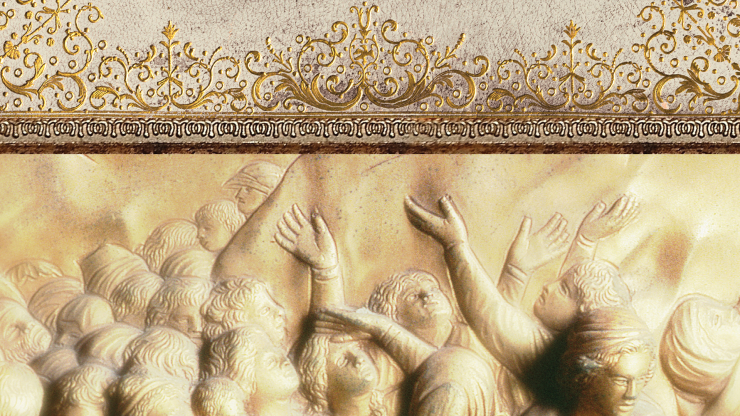The Maccabean Revolt

2 Min Read
The centuries leading up to the birth of Christ were filled with the drama of conquest and revolution. In this brief clip from his teaching series Dust to Glory, R.C. Sproul surveys the Maccabean revolt and the Roman domination of the Hebrew people.
Transcript:
In the year 164 BC, we have what has been called in history the Maccabean revolt. The Maccabean revolt came to pass when a man, a Jewish believer by the name of Mattathias, who had five sons, rose up in protest against the policies of Antiochus and sought to fight a rearguard guerilla warfare-type of insurrection against the Antiochan invaders. Well, in the beginning of this period, very shortly after the revolt broke out, Mattathias died, and so the leadership of the revolt fell to his third oldest son, whose name was Judas. He assumed or received the name Judas Maccabeus, which means “Judas the Hammerer.” He became a national hero and remains a national hero in Jewish tradition because of his daring and bold raids and forays against the invaders. And he was able to win certain concessions from the rulers in the year 164, which included religious freedom being restored to the Jewish people and the temple being opened once again for the celebration of Jewish worship. And so, in that year, the Jewish temple was rededicated, and a great feast and celebration ensued, which is celebrated to this very day. The reopening and rededication of the temple took place in the month of December and is celebrated to this day under the feast of Hanukkah. We’re all familiar with the Jewish celebration of Hanukkah, which is a celebration of the victory of Judas Maccabeus in this period of revolt. In 142, the Jews, under the Maccabees, were able to gain their full freedom from foreign domination, and their liberation and freedom lasted from the year 142 until the year 63 BC, when Palestine was once again conquered. But this time, the conquerors were the Romans, and the general who was responsible for the conquest of Palestine in the year 63 BC is a man with whom we’re somewhat familiar because of our awareness of Shakespeare’s play, Julius Caesar, and our history books that tell us of the first great triumvirate that included in its members the general whose name was Pompey. And Pompey, you know, became associated with Julius Caesar, and there were all kinds of intrigue later on. We remember in the story that Shakespeare gives us of the assassination of Julius Caesar, that when Brutus stabbed Caesar and Caesar’s last words were what? “Et tu, Brute? Then fall, Caesar.” And then in the climactic moment in this scene of the play, Julius Caesar falls dead there on the floor of the Senate, and he falls dead at the foot of the bust of Pompey. Well, it’s this man Pompey who was responsible for the Roman conquest of the Jewish nation in the year 63.